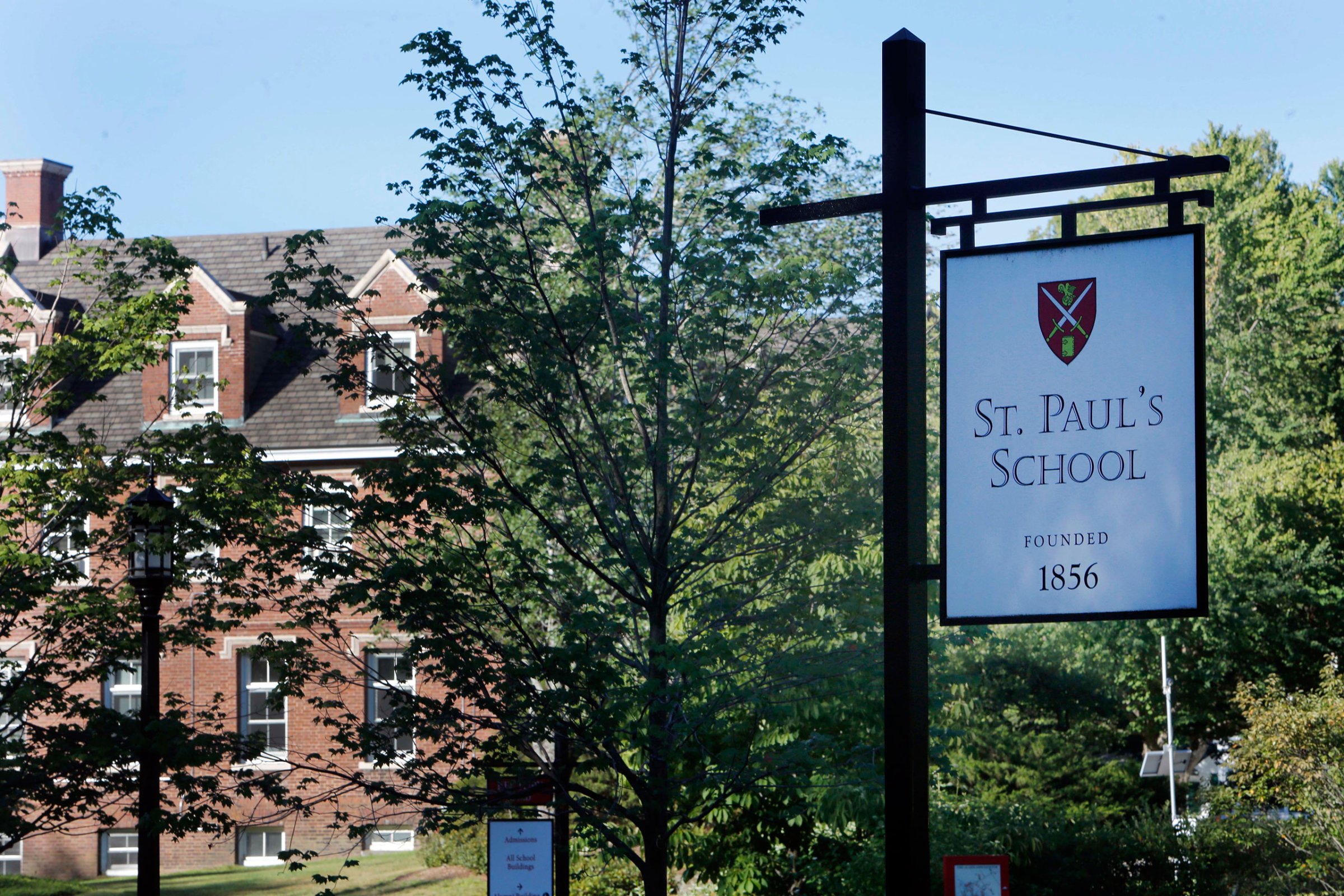
St. Paul’s School, a private boarding school in New Hampshire, asked a federal court to bar a sexual assault victim who is suing the school from remaining anonymous during court proceedings.
The victim sued her former school in June, alleging that administrators failed to protect her when she was sexually assaulted as a 15-year-old by fellow student Owen Labrie, then 18, in 2014. In a separate case against Labrie in 2014, he was convicted of a felony charge of using a computer to lure a minor into a sexual encounter, three misdemeanor sexual assault charges, and one misdemeanor child endangerment charge last August. He’s currently appealing the decision.
St. Paul’s said in a court filing last week in response to the victim’s lawsuit that she should not be allowed to remain anonymous during the trial because of her attempts to disparage the school in the press.
“Plaintiffs’ blatant attempts to try this case in the media—up to and including attempting to set a range on a potential jury verdict—from behind a cloak of anonymity should not be countenanced,” lawyers for St. Paul’s said in the filing. “Such conduct prejudices both the School and this proceeding by potentially contaminating the jury pool with one-sided allegations concerning the credibility and character of the parties, only one of whom—the School—is known.”
The school acknowledged in the filing that the victim has an “interest” in protecting her identity, but requested that she stop discussing the case in the media and bears the cost of redacting her name from court documents.
The filing has led to some concern that the name of the victim might be released publicly. The school responded to those concerns in a statement on its website on Monday.
“It appears the media has not read, or is not accurately reporting about our filing. We did not oppose the family’s use of pseudonyms, and certainly did not request that the young woman’s name be made public. Rather, we agreed to the family’s use of pseudonyms during pretrial phases of the litigation, provided they agreed to stop improperly attacking the School’s character in statements to the press,” the school said. “The point of the pleading was to suggest that the family’s request to proceed anonymously should incorporate the School’s desire for the matter to be handled responsibly in court and not through coordinated media attacks.”
“No one at the School has any desire or intention to reveal the identity of the young woman or her family,” the statement continued. “However, we have taken steps to ensure the case is fairly considered in court proceedings and not through media attacks.”
Rape shield laws typically guarantee victims of sexual assault a degree of anonymity. But New Hampshire’s Supreme Court dealt a blow to the state’s rape shield law earlier this year, ruling that information about a victim’s previous sexual history could be unsealed in a separate case. The court later issued a stay in that case so the state’s attorney general could argue why the information should remain confidential. That hearing will take place on Sept. 21.
More Must-Reads From TIME
- The 100 Most Influential People of 2024
- The Revolution of Yulia Navalnaya
- 6 Compliments That Land Every Time
- What's the Deal With the Bitcoin Halving?
- If You're Dating Right Now , You're Brave: Column
- The AI That Could Heal a Divided Internet
- Fallout Is a Brilliant Model for the Future of Video Game Adaptations
- Want Weekly Recs on What to Watch, Read, and More? Sign Up for Worth Your Time
Write to Samantha Cooney at samantha.cooney@time.com